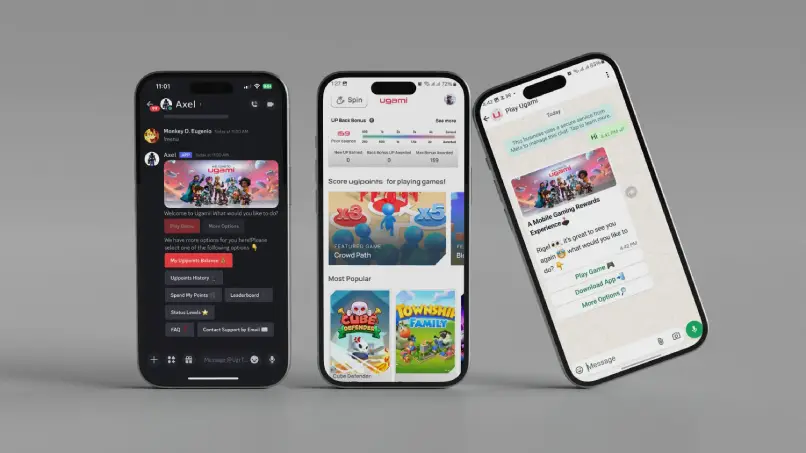How to play to earn rewards: comprehensive guide for new gamers
Just How Play-to-Earn Benefits Are Changing the Gaming Experience
The advent of Play-to-Earn incentives notes a significant development in the video gaming landscape, changing the emphasis from simple amusement to real economic participation. This improvement invites players to spend not just their time yet additionally their financial sources, fostering a sense of possession and much deeper interaction within video game communities. As varied demographics embrace these opportunities, new areas emerge, obscuring the lines between leisure and investment. This transition raises essential concerns regarding sustainability and the future of gaming. What implications could this have for the sector and its gamers?

Evolution of Video Gaming Models
The landscape of video gaming has gone through a considerable change over the decades, progressing from typical pay-to-play models to a lot more ingenious frameworks that prioritize customer engagement and monetization. Games were mostly offered as standalone items, needing in advance payments for gain access to. This design, while effective in creating revenue, usually limited gamer communication and community building.

In the last few years, the increase of blockchain modern technology has actually presented play-to-earn systems that basically modify pc gaming dynamics. These versions not only provide a platform for gamers to make incentives but also equalize the gaming economic climate, allowing users to have in-game assets. This advancement shows a broader pattern in the direction of community-driven experiences, where programmers and players team up in shaping the video gaming landscape, eventually redefining just how value is viewed in the video gaming sector.
Benefits of Play-to-Earn Solutions
Unlocking brand-new avenues for player interaction, play-to-earn systems use an array of advantages that fundamentally boost the pc gaming experience. These systems empower gamers by offering tangible rewards for their effort and time, cultivating a sense of ownership and financial investment in the video game. This inherent inspiration drives players to engage more deeply, exploring game technicians and neighborhoods that they may otherwise overlook.
Additionally, play-to-earn designs democratize video gaming by leveling the having fun area. Players from various histories can utilize on their skills and creativity, making it possible for new participants to experience financial advantages that were traditionally reserved for programmers and publishers. This shift urges a much more varied player base, enriching the video gaming ecosystem with varied perspectives and experiences.
Furthermore, play-to-earn systems promote neighborhood building, as players work together and compete within decentralized atmospheres. This interaction grows social links that boost enjoyment and retention, as players feel a feeling of belonging.
Finally, these systems can bring about raised longevity for video games, as consistent player engagement typically equates into continual passion and investment in future versions or expansions, ensuring a dynamic video gaming landscape.
Financial Effect On Players
Play-to-earn systems not only boost gamer engagement but additionally have substantial economic ramifications for people included. These systems enable gamers to monetize their time informative post and skills, changing gaming from a recreation right into a viable income source. As gamers earn copyright or in-game properties that can be traded or offered in real-world markets, they obtain monetary rewards that can substantially influence their individual economic climates.
The economic version fosters a new age of entrepreneurship, as gamers can purchase numerous pc gaming communities or establish strategies to enhance their earnings. This capacity for earnings generation attracts a varied market, consisting of those in areas with restricted task chances - play to earn rewards. Consequently, many gamers are now watching gaming not simply as home entertainment but as a pathway to economic empowerment.
Nevertheless, it is necessary to identify the volatility associated with cryptocurrencies and the potential click resources for market variations to impact incomes. Players need to navigate these dangers while balancing their gaming and financial tasks. On the whole, the financial effect on players is extensive, improving their relationship with gaming and opening opportunities for wide range creation in a progressively digital economic situation.
Area Structure in P2E Gamings

Gamers in P2E atmospheres frequently create guilds or partnerships, producing networks that promote source sharing, critical planning, and common support. These teams typically take part in participating goals or competitors, additionally enhancing their bonds and enhancing the general gaming experience. Additionally, community-driven events, such as tournaments and celebrations, serve to unify players, foster sociability, and incentivize participation.
Furthermore, developers actively engage with their communities, incorporating responses and pointers that form video game development. This collective strategy not only empowers gamers but likewise guarantees that video games evolve in alignment with player passions, enhancing fulfillment and long-term interaction. Ultimately, neighborhood building in P2E video games is not simply an attribute; it is a foundational element that transforms the gaming landscape right into a much more comprehensive and interactive environment.
Future Fads in Video Gaming
The pc gaming sector's development is positioned to welcome a number of transformative trends that will redefine gamer interaction and experience. One of one of the most significant fads is the combination of hop over to here man-made knowledge (AI) to develop more customized pc gaming settings. AI can examine gamer habits and preferences, permitting developers to tailor experiences that resonate deeply with private customers.
Furthermore, the introduction of virtual and augmented truth (VR/AR) innovations is set to boost immersion, using players the ability to connect with electronic worlds in unmatched methods. This will certainly not just boost gameplay but likewise foster social links, as gamers can collaborate and contend in shared settings.
In addition, the surge of blockchain technology will remain to affect the pc gaming landscape, enabling true ownership of in-game properties via non-fungible tokens (NFTs) This trend will empower players to trade and monetize their gaming experiences, additionally obscuring the lines between pc gaming and investment.
Verdict
In verdict, the appearance of play-to-earn rewards symbolizes a crucial transformation within the pc gaming sector. By integrating financial incentives into gameplay, gamers are significantly involved, promoting a sense of ownership and financial investment in digital environments. In addition, the democratization of video gaming promotes varied participation, advertising cooperation and area building. As these fads remain to progress, the blurred lines in between home entertainment and investment will likely redefine the future of video gaming, shaping brand-new experiences for players worldwide.